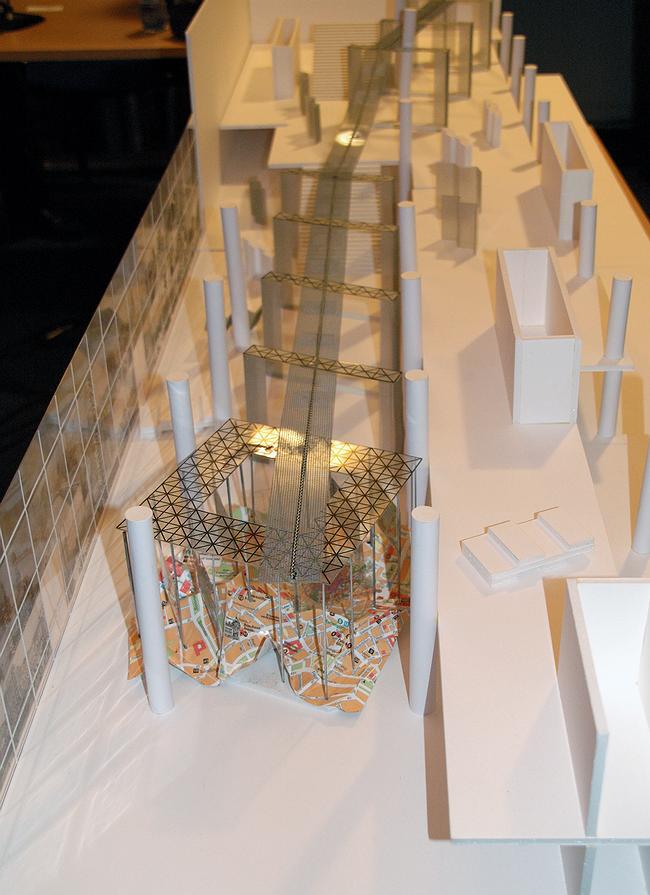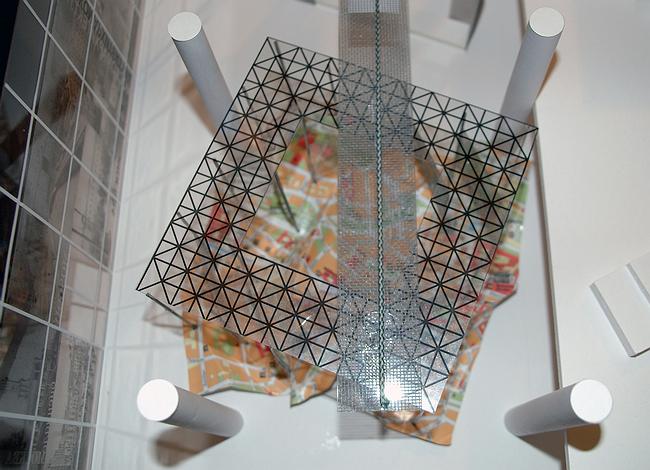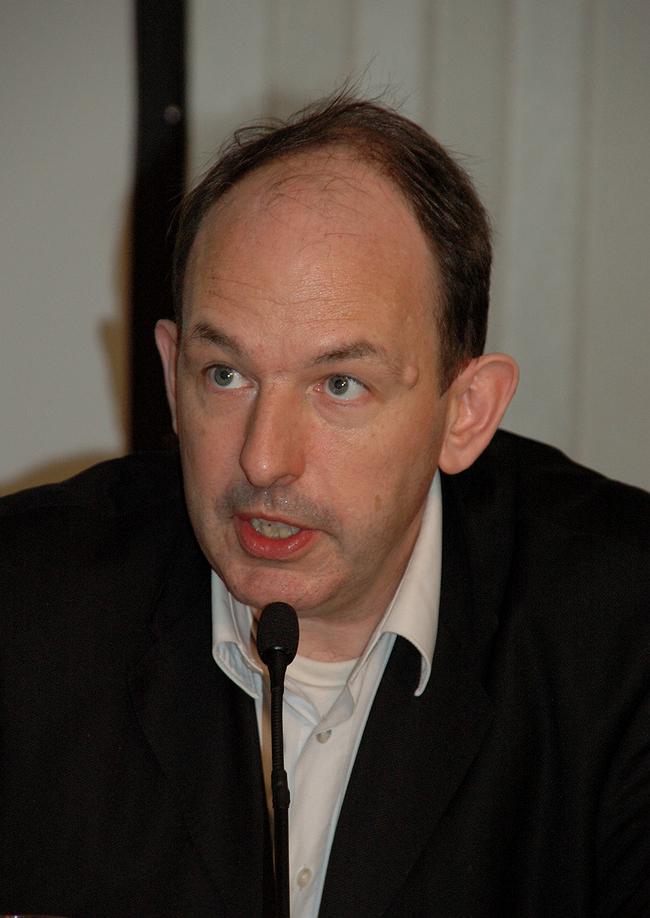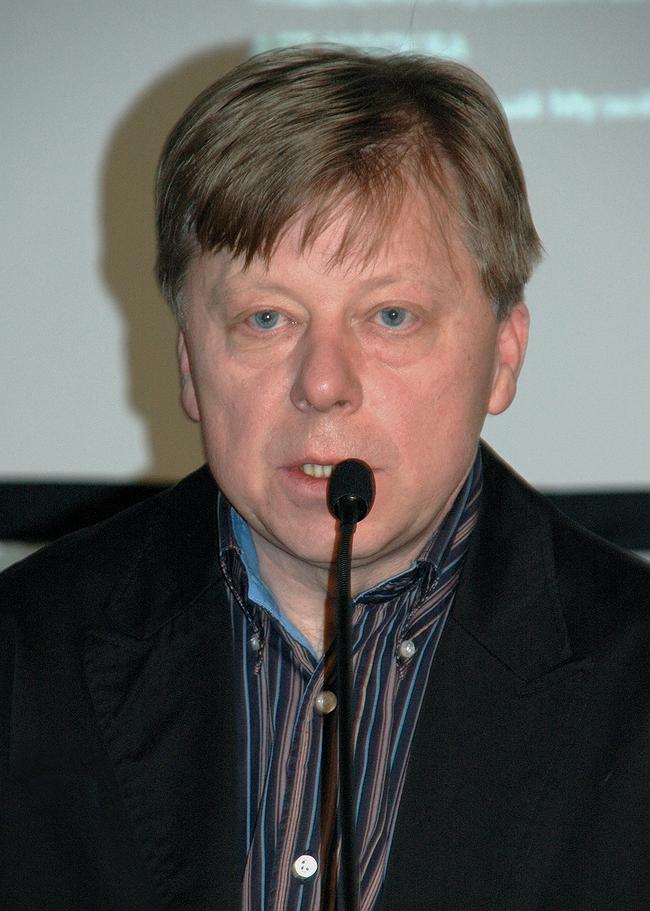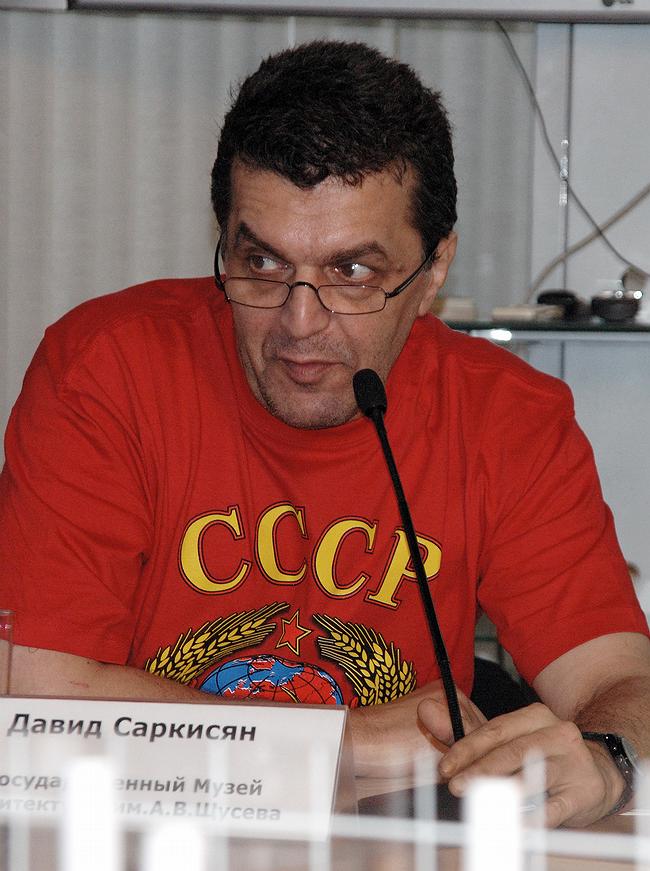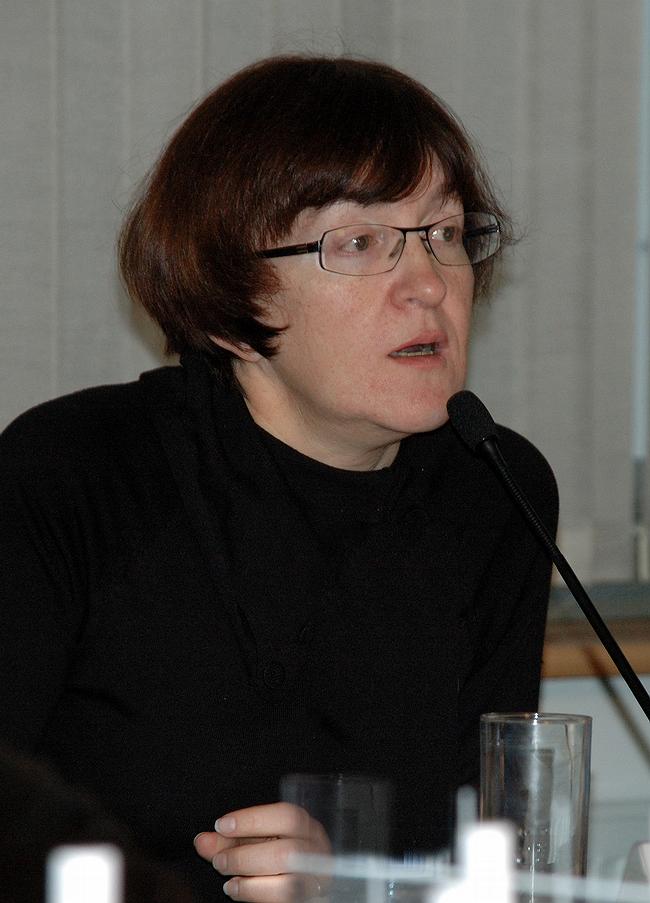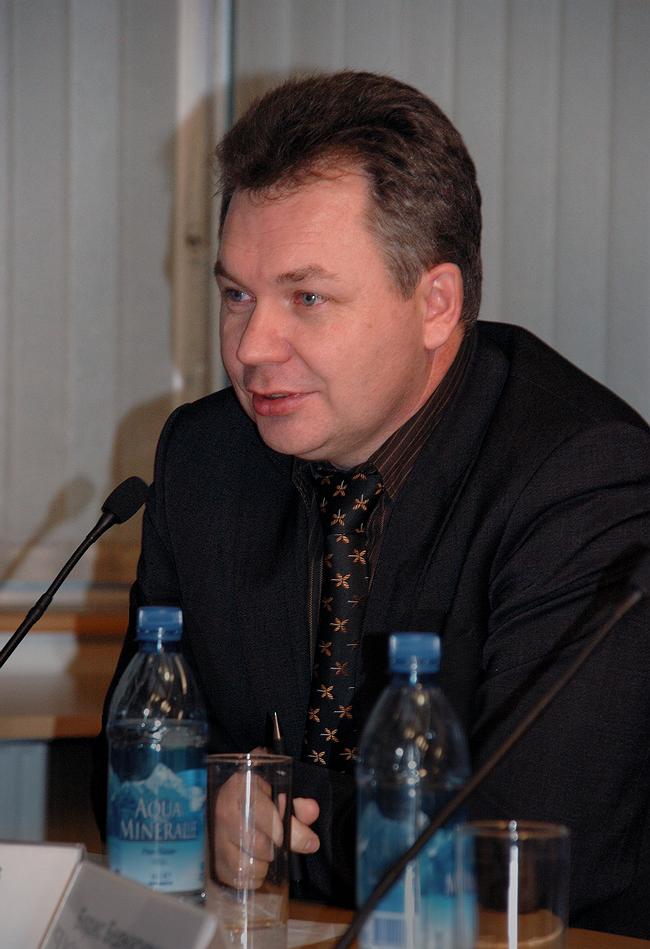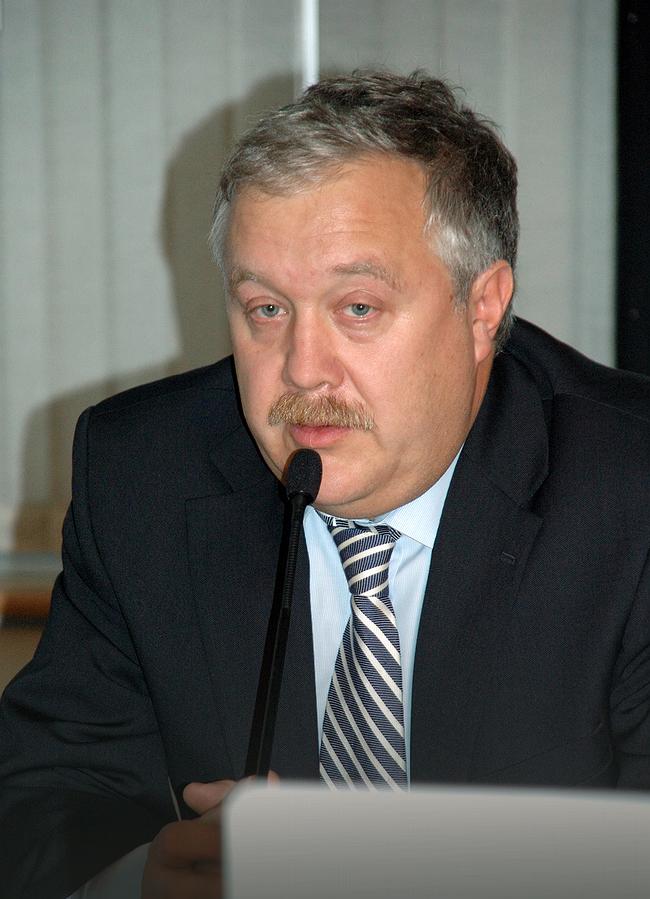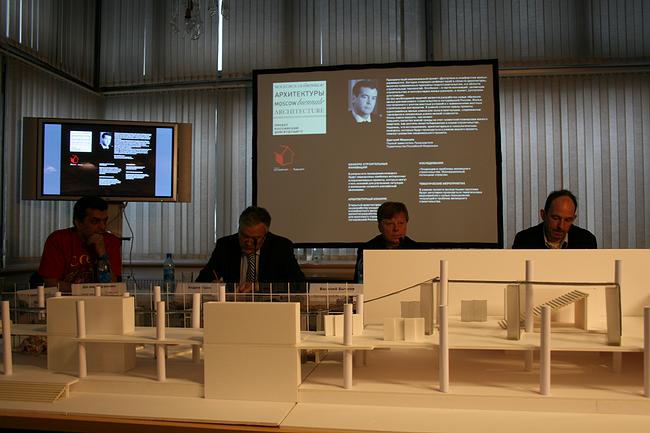|
Published on Archi.ru (https://archi.ru) |
|
| 08.02.2008 | |
|
Turn of expansion. Moscow Biennale will teach life |
|
|
Julia Tarabarina, Irina Filchenkova |
|
|
On the 7th of February, at the press conference, held in the Central House of Artists, it was officially announced about the first Moscow Architecture Biennale focused on mass housing projects It is well known that “Arch-Moscow”, the famous exhibition centre, last year made an attempt to vary and become a festival headed by Bart Goldhoorn. Noncommercial expositions were taken to basement of the Central House of Artist, to the yard and outdoor exposition platforms – as a result, all those who were used to see the main content of an exhibition within the building went out of there certain that “Arch-Moscow” had become absolutely commercial and there was no architectural art left. The organizer however did not agree with that and the enlargement will continue. In June it was said that the next exhibition would be held not as a festival but in the context of the first Moscow Architecture Biennale. The spring is coming and yesterday at the press conference the organizations and participants of the new Biennale gave all the details. Biennale will be held from 27 May - 22 June, and the festival “Arch-Moscow” within it will last for 5 days, from May, 28. The president of the organizing committee of Biennale will be Vasily Bychkov, the director of the Central House of Artist and “Arch-Moscow”, and among its main organizers are the Central House of Artist, the Tretyakov Gallery and the Museum of Architecture in the name of A.V. Schuseva – they will be the main exposition platforms as well. Biennale will also host the famous festival of interiors “Pod kryshei doma” [Under a home’s roof] and Lifestyle, the commercial interior salon. Also among organizers there will be Moskomarkhitectura, the fund “Art-Moscow”, the Union of Artists and the magazine “Proekt Rossia” [Project Russia]. Bart Goldhoorn, the chief editor of the last, will be the curator of the new Biennale. This time the idea suggested by Goldhoorn sounds in Biennale manner trendy and intricately: a few words – “how to live” and there is not any punctuation mark. There appears an obvious tradition –the idea of this year Venice Biennale is hard to translate from English and if consider it thoroughly, again it demands the architects to distract from their professions and look away, into the distance. The topic of Moscow Biennale is linguistically hard as well. Is there a dot or a question mark? Will they explain how to live or will ask? Well, this is a motive for a discussion. But actually, as the organizers add, these few words have a secret indeed, but strictly saying, the subject is housing, the problem that has been disturbing Moscow citizens. “Architects cannot serve a rich client anymore, we must think how a modern city should look like, modern houses, and where our children will live” – this is the Bart Goldhoorn’s appeal to architectural society. “The middle class is growing, at that is growing need in high-quality housing that cannot be served by Soviet period holdovers, by standard bearing-wall houses” – he explains, and asks foreign architects for help – they will show to ours how they should develop social housing. In the context of the festival there will be a lot of workshops of the leading world-recognized architects (24 of them are already invited). They will tell the architects how to build mass housing, explain to developers how to plan, to people how to live there. Well, they will teach us life. The topic of the new Moscow Biennale is aimed at social issues just like the slogan of the previous “Arch-Moscow”, suggested by the same curator – that time it was urban planning, now it is housing. They are related, one grows from the other and together they make an appeal aimed at something absolutely different that architects and Moscow clients got used to. Roughly saying, they got used to serve luxury of previous accumulation, and appreciate an artistry of “pure” art. Moreover, at some time it was Arch-Moscow that became the main exhibition where architects who knew the aesthetic side of their profession, displayed their work. This aesthetics and obvious artistry of installations of the exhibition’s noncommercial part determined the meaning of the exhibition and distinguished what was shown there from the built around “Moscow style”. Now, Bart Goldhoorn, the curator, wishes to turn the advanced architectural society from the medieval-renaissance “experience” to ethic values of recent times and teach Moscow architects how to care about a town, environment and people, like their European colleagues do. These ideas can be perfectly described by the slogan of Venice Biennale 2000, suggested by Massimiliano Fuksas: “more ethics, less esthetics”. It is quite paradoxical for architecture as an art but very important in socially meaning. Only in our Moscow context it’s not that simple; to divide what we have into two parts, put on one scale art and luxury for rich experts and on the other civic position of an architect-socialist, and then it is hard to choose any. Frankly, for European colleagues it would also be hard. But this is an endless discussion – the idea is important and a tricky one, quite painful. So, we offer just to watch how Moscow will accept the other chance to cultivate “their” pure as a teardrop socialism of creators-individualists in our post-socialistic space. Well, the Moscow Architecture Biennale will include workshops and exhibitions held at different platforms. In the Tretyakov Gallery there will be the exhibition of recently approved master plan of Moscow, in Museum of Architecture will be held a number of expositions: new Russian towns (there are 20 of them now), the other devoted to “coming again” houses-communes, and also exhibition “Colours of Moscow architecture” that will show either new works of Moscow architects or their collectively made installation. Altogether the expositions are called “Russian pavilion” though visually it is clear there is no such, but the general theme. To the “pavilion” joins the contest “A Russian house of future” devoted to projecting of mass housing. Sergey Zhuravlev, its organizer says that the developed countries have long ago turned to modern mass housing projects and today their main problem is how to harmonize them with the changed structure of cities. And in Russia residential reserve is almost destroyed or is primitive and this gives us (sic!) the advantage over the West, because we have all the opportunities and may well become a world standard in economy-class construction. And this might be considered like this: it is not that bad that we live in aged ruins of empire insulas, because we have a chance (yet again!) to start all over. In short, this is a sore topic and it is hard to decide how to turn to ethics, thought perhaps it is time to. But it is interesting to know what will come out of the heavy growth, merge and union of exhibitions and festival with the general for all idea turn on 180 oC. NoneNoneNoneNoneNoneNoneNoneNoneNone |
|
